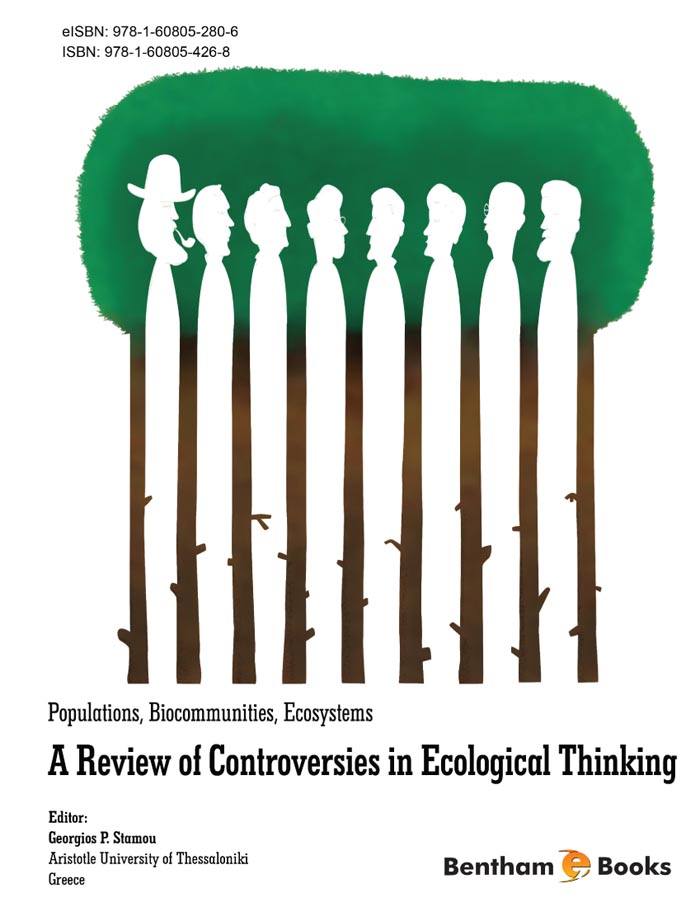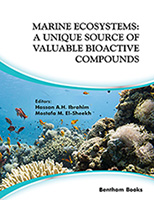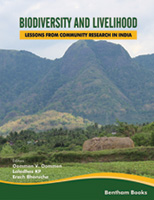Science, like fine arts, must not reflect like a mirror but must magnify like a lens . And not only this, but as Daniel Pauly, a marine ecologist par excellence, wrote , such a lens and its magnification need to be focused accordingly: ‘… Scientific discoveries are often a matter of focusing one’s microscope — actual or virtual! … It was easy not to see …, and this is why we celebrate those who did, along with those scientists who discovered things that others couldn’t see, be those things natural selection, plate tectonics or the structure of DNA’.
Now, this eBook is somehow unique in the sense that is composed of five chapters four of which (chapter 2, Population ecology and life-history strategies: The shaping of an alternative worldview, by Konstantinos J. Korfiatis; chapter 3, Is ecology a holistic science, after all? by Ageliki Lefkaditou; chapter 4, Systems ecology reloaded: a critical assessment focusing on the relations between science and ideology, by Dimitrios Schizas; and chapter 5, The ideology of diversity, by Nikos Nikisianis) present the ideas developed in four PhD theses supervised by my colleague Giorgos P. Stamou (the editor of the eBook), who is also the author of the first chapter (Critical realism and ecological studies). These five chapters present a, rather different, historical as well as epistemological view of the evolution of ecology in the last decades. More importantly, however, all these five chapters show in a synergetic fashion that scientific discoveries, theories, views and achievements are based on well articulated, solid, coherent, incremental and targeted research. Or, in other words, Stamou can be resembled to Sisyphus having the luck of not being condemned by gods but by potential controversies that the work, on which this eBook is based, will generate. Yet, as it is known and thoroughly discussed in this eBook, controversy is the main driver of the evolution of science.
It is beyond any doubt that this multi-chapter eBook not only magnifies on different hot issues of the ecological theory (spanning from single populations to ecosystems) but the focus of such a magnification is different than the ones that have been attempted before. Thus, it opens up new dimensions and views for ecological theory. Although it is intriguing to hitherto summarize/review the different chapters, such an effort has been nicely done in the preface of the eBook, written by Stamou, and hence there is no need to be duplicated here (albeit it leaves open a good opportunity for a eBook review). In contrast, I would rather attempt to refocus my ‘microscope’ for issues related to the marine realm using the authors’ magnification. Nikisianis in chapter 5 discusses the ideology behind the evolution of the now widely used term of diversity, which attracts a lot of attention by media. He writes ‘Thus, the ambiguity of diversity is interpreted here as the result of hidden, socially originated, ideological representations within the scientific fields of ecology’. Naturally, this is equally applicable to marine diversity but such a view can also be extrapolated to other media-attracting attention marine issues. For instance, it is generally known that marine ecosystems suffer from a severe depletion of their embedded populations, a fact drastically affecting both their structure and function (their diversity included!). Although the identification of the detrimental effects of fishing goes back several decades and led to the dismiss of the popular belief, even among scientists, that fish populations will always replenish themselves because of their high fecundity (i.e. the million egg fallacy), this was done in a systematic fashion and attained considerable mass media attention in the last two decades. It also created a need for management re-orientation. Thus, fisheries management, in a fashion parallel to diversity above, has gradually shifted from single-species management (i.e. assessing and managing the stock of a fish species in a given area), to the precautionary management scheme and, nowadays, to the ecosystem management approach, with the latter term being equally ambiguous to diversity. And the driver for such a transition is most probably socially-originated as for diversity.
Finally, the extrapolation of the authors’ focusing on similar and other issues from the aquatic realm will be useful and bridge the well recognized gap between terrestrial and marine ecology.
Prof. Kostantinos I. Stergiou
Aristotle University of Thessaloniki
Thessaloniki
Greece




